Home>Gardening & Outdoor>Outdoor Recreation & Activities>How To Test Swimming Pool Water
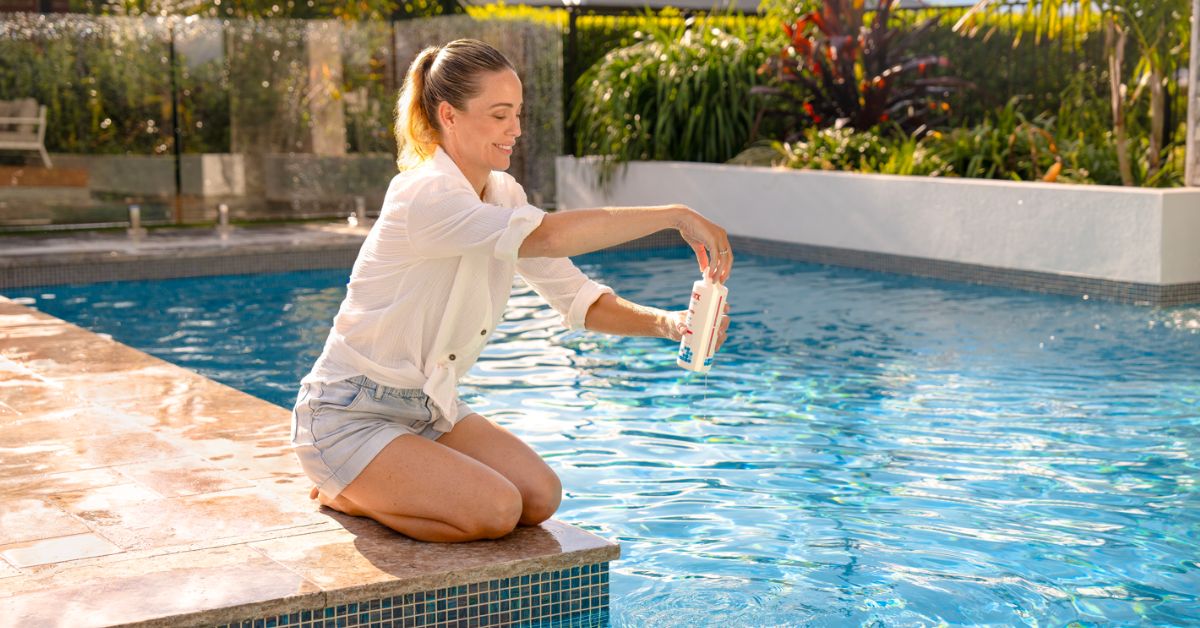

Outdoor Recreation & Activities
How To Test Swimming Pool Water
Published: February 18, 2024
Learn how to test swimming pool water for optimal safety and enjoyment. Get expert tips on outdoor recreation and activities.
(Many of the links in this article redirect to a specific reviewed product. Your purchase of these products through affiliate links helps to generate commission for Storables.com, at no extra cost. Learn more)
Introduction
Maintaining a clean and safe swimming pool is essential for the enjoyment and well-being of all who use it. One crucial aspect of pool maintenance is regularly testing the water to ensure it is balanced and free from harmful contaminants. Proper testing allows pool owners to monitor the chemical levels, pH balance, and overall water quality, ensuring a healthy and inviting swimming environment.
Testing swimming pool water is a fundamental practice that helps prevent waterborne illnesses and ensures that the pool remains a refreshing oasis for swimmers. By regularly monitoring the water quality, pool owners can address any imbalances or issues promptly, preventing the development of algae, bacteria, and other harmful substances that can compromise the pool's cleanliness and safety.
In this comprehensive guide, we will explore the importance of testing swimming pool water, the different methods available for conducting tests, and how to interpret and understand the test results. Additionally, we will provide valuable tips for maintaining proper water quality, ensuring that your swimming pool remains a pristine and inviting space for relaxation and recreation.
Let's dive into the world of swimming pool water testing and discover the essential practices that will help you keep your pool water clean, clear, and enjoyable for all.
Key Takeaways:
- Regularly testing swimming pool water is crucial for maintaining a safe and enjoyable swimming environment. It helps prevent waterborne illnesses, preserves pool infrastructure, and reflects responsible pool ownership.
- Different testing methods, such as test strips and digital testers, offer options for pool owners to monitor water quality. Understanding and interpreting test results empowers proactive maintenance and ensures a clean and inviting pool.
Importance of Testing Swimming Pool Water
Regularly testing swimming pool water is a critical aspect of pool maintenance, playing a pivotal role in ensuring the safety, cleanliness, and overall quality of the water. The importance of this practice cannot be overstated, as it directly impacts the well-being of swimmers and the longevity of the pool itself.
First and foremost, testing the pool water allows for the monitoring of essential chemical levels, such as chlorine, pH, alkalinity, and calcium hardness. These parameters are crucial for maintaining a healthy swimming environment. Proper chlorine levels help eliminate harmful bacteria and contaminants, safeguarding swimmers against waterborne illnesses. Additionally, maintaining the correct pH balance is vital, as it directly impacts the effectiveness of chlorine and the comfort of swimmers. Imbalanced pH levels can lead to skin and eye irritation, rendering the pool water unpleasant and potentially harmful.
Furthermore, regular testing enables the early detection of imbalances or irregularities in the water chemistry. By identifying and addressing these issues promptly, pool owners can prevent the proliferation of algae, bacteria, and other harmful microorganisms. This proactive approach not only preserves the water's clarity and cleanliness but also minimizes the need for extensive and costly treatments to rectify imbalances.
In addition to ensuring the safety and comfort of swimmers, testing the pool water also contributes to the preservation of pool equipment and infrastructure. Imbalanced water chemistry can lead to corrosion of metal components, scale buildup, and damage to the pool's surface. By maintaining proper water balance through regular testing, pool owners can prolong the lifespan of their equipment and prevent costly repairs or replacements.
Moreover, testing the pool water provides peace of mind to pool owners, knowing that they are providing a safe and enjoyable swimming environment for their family, friends, and guests. It reflects a commitment to responsible pool ownership and a dedication to maintaining a clean and inviting space for recreation and relaxation.
In essence, the importance of testing swimming pool water cannot be overstated. It is a fundamental practice that safeguards the health of swimmers, preserves the pool infrastructure, and upholds the overall enjoyment and longevity of the pool. By prioritizing regular testing and diligently maintaining proper water chemistry, pool owners can create a safe, clean, and inviting oasis for all to enjoy.
Different Methods of Testing Swimming Pool Water
When it comes to testing swimming pool water, there are several methods available to assess the chemical balance and overall quality of the water. Each method offers unique advantages and is suited to different preferences and needs. Understanding these testing methods is essential for pool owners to make informed decisions about how to monitor and maintain their pool water effectively.
-
Test Strips: Test strips are a popular and convenient method for testing swimming pool water. These strips contain reagent pads that change color to indicate the levels of chlorine, pH, alkalinity, and other chemical parameters in the water. To use test strips, simply dip them into the pool water and compare the resulting colors to a provided color chart. Test strips are easy to use, provide quick results, and are relatively inexpensive, making them a practical choice for regular testing.
-
Liquid Test Kits: Liquid test kits involve the use of reagents and color-matching vials to determine the chemical levels in the pool water. By adding specific reagents to water samples and observing the resulting color changes, pool owners can assess chlorine, pH, alkalinity, and other parameters with precision. Liquid test kits offer greater accuracy than test strips and are suitable for detailed and comprehensive water testing.
-
Digital Testers: Digital testers utilize electronic probes to measure the chemical levels in swimming pool water. These devices provide precise and digital readouts of chlorine, pH, and other parameters, offering a high level of accuracy and reliability. While digital testers may require a higher initial investment, they are user-friendly and eliminate the subjectivity associated with interpreting color changes, making them a valuable tool for precise water testing.
-
Professional Laboratory Testing: For a comprehensive analysis of pool water, pool owners can opt for professional laboratory testing. This involves collecting a water sample and sending it to a certified laboratory for in-depth analysis. Professional testing provides a detailed assessment of the water chemistry, including the presence of metals, minerals, and other contaminants, offering valuable insights for maintaining optimal water quality.
-
Automated Water Testing Systems: Automated water testing systems are advanced devices that continuously monitor and analyze the chemical parameters of swimming pool water. These systems utilize sensors and technology to provide real-time data on chlorine, pH, and other factors, allowing for proactive adjustments and precise control of water chemistry. Automated testing systems offer convenience and peace of mind, ensuring that the pool water remains consistently balanced and safe for swimmers.
By understanding the different methods of testing swimming pool water, pool owners can select the approach that best aligns with their preferences, budget, and need for accuracy. Whether opting for the simplicity of test strips, the precision of liquid test kits, the convenience of digital testers, or the comprehensive analysis of professional laboratory testing, the key is to prioritize regular testing to maintain a healthy and inviting swimming environment.
Understanding Test Results
Interpreting the results of swimming pool water tests is crucial for maintaining a safe and inviting swimming environment. Understanding the significance of each parameter and the implications of the test results empowers pool owners to make informed decisions about water treatment and maintenance. Here's a detailed look at the key parameters and how to interpret their test results:
Chlorine Levels
- Ideal Range: The ideal chlorine level for a swimming pool typically falls between 1.0 and 3.0 parts per million (ppm).
- Implications: Low chlorine levels can indicate inadequate sanitization, potentially leading to the growth of algae and harmful bacteria. Conversely, high chlorine levels may cause skin and eye irritation.
- Action: Adjust the chlorine levels as needed using appropriate sanitizers to ensure effective disinfection without causing discomfort to swimmers.
Read more: How Much Water In A Olympic Swimming Pool
pH Balance
- Ideal Range: The recommended pH range for pool water is between 7.4 and 7.6.
- Implications: Imbalanced pH levels can impact the effectiveness of chlorine and lead to skin and eye irritation. Low pH levels can corrode pool equipment, while high pH levels may result in scale formation.
- Action: Use pH adjusters to bring the water's pH within the optimal range, ensuring comfortable and safe swimming conditions.
Alkalinity
- Ideal Range: Total alkalinity should be maintained between 80 and 120 ppm.
- Implications: Inadequate alkalinity can cause pH fluctuations, making it challenging to maintain a stable pH level. High alkalinity can lead to cloudiness and scale formation.
- Action: Adjust the alkalinity using appropriate products to stabilize the pH and prevent potential water quality issues.
Calcium Hardness
- Ideal Range: The recommended calcium hardness level ranges from 200 to 400 ppm.
- Implications: Low calcium hardness can lead to the erosion of plaster and metal components, while high levels may result in scale formation.
- Action: Adjust the calcium hardness as necessary to protect the pool's infrastructure and maintain water balance.
Total Dissolved Solids (TDS)
- Ideal Range: While TDS levels can vary, excessive TDS may indicate the need to partially drain and refill the pool water.
- Implications: High TDS levels can affect water clarity and may indicate the accumulation of various dissolved substances.
- Action: Monitor TDS levels and consider diluting the pool water if TDS levels exceed recommended thresholds.
By comprehensively understanding and interpreting the test results for these key parameters, pool owners can proactively address any imbalances, maintain optimal water quality, and ensure a safe and enjoyable swimming experience for all. Regular testing and diligent interpretation of results form the foundation of effective pool water maintenance, contributing to the longevity and appeal of the swimming pool.
Read more: How Often To Change Swimming Pool Water
Tips for Maintaining Proper Water Quality
Maintaining proper water quality in a swimming pool is an ongoing commitment that requires attention to detail and consistent care. By implementing the following tips, pool owners can ensure that their pool water remains clean, balanced, and inviting for swimmers:
Regular Testing and Monitoring
Consistent testing of the pool water is the cornerstone of maintaining proper water quality. Establish a routine schedule for testing chemical levels, pH balance, and overall water quality. By monitoring the water parameters regularly, pool owners can detect imbalances early and take proactive measures to address any issues promptly.
Proper Chemical Balance
Maintaining the appropriate chemical balance in the pool water is essential for effective disinfection and swimmer comfort. Ensure that chlorine levels are within the recommended range to eliminate harmful bacteria and contaminants. Additionally, monitor and adjust pH, alkalinity, and calcium hardness levels to create a comfortable and safe swimming environment.
Routine Cleaning and Maintenance
Regularly clean the pool surfaces, skimmer baskets, and filters to prevent the accumulation of debris and contaminants. Skim the water surface to remove leaves, insects, and other debris, and vacuum the pool to eliminate dirt and sediment. Keeping the pool clean reduces the load on the filtration system and helps maintain water clarity.
Read more: How Many Gallons Of Water In A Swimming Pool
Adequate Circulation and Filtration
Proper circulation and filtration are vital for maintaining water quality. Run the pool pump and filtration system for an adequate duration each day to ensure that the water is effectively circulated and filtered. This helps remove impurities and ensures that the pool water remains clean and clear.
Sunlight and UV Protection
Minimize the impact of sunlight on the pool water by using UV-protective pool covers or employing stabilizers to prevent the degradation of chlorine due to UV exposure. Limiting the effects of sunlight helps maintain the effectiveness of sanitizers and prevents the formation of algae and other contaminants.
Regular Shock Treatments
Periodically administer shock treatments to the pool water to eliminate organic contaminants, restore chlorine effectiveness, and prevent the development of chloramines. Shock treatments are particularly beneficial after heavy pool usage, heavy rainfall, or periods of high temperatures.
Professional Maintenance and Servicing
Engage professional pool maintenance services for regular inspections, equipment checks, and professional cleaning. Professional technicians can identify potential issues, perform necessary repairs, and provide expert guidance on maintaining optimal water quality.
By incorporating these tips into their pool maintenance routine, pool owners can uphold proper water quality, create a safe and enjoyable swimming environment, and prolong the lifespan of their pool. Consistent care and attention to water quality contribute to the overall satisfaction and well-being of all who use the pool.
Read more: What Kills Water Bugs In A Swimming Pool
Conclusion
In conclusion, maintaining the water quality of a swimming pool is a fundamental responsibility for pool owners, ensuring a safe, clean, and inviting environment for swimmers. The practice of regularly testing the pool water, understanding the test results, and implementing effective maintenance strategies is paramount to achieving this goal.
By prioritizing regular testing using methods such as test strips, liquid test kits, digital testers, or professional laboratory analysis, pool owners can gain valuable insights into the chemical balance and overall quality of the water. Understanding the significance of key parameters such as chlorine levels, pH balance, alkalinity, calcium hardness, and total dissolved solids empowers pool owners to make informed decisions about water treatment and maintenance.
Furthermore, implementing proactive measures such as routine cleaning, proper chemical balance, adequate circulation and filtration, and UV protection contributes to the preservation of water quality and the longevity of the pool infrastructure. Additionally, engaging professional maintenance services for expert guidance and comprehensive servicing enhances the overall effectiveness of water quality management.
Ultimately, the commitment to maintaining proper water quality in a swimming pool reflects a dedication to providing a safe and enjoyable space for recreation and relaxation. By embracing the tips and best practices outlined in this guide, pool owners can uphold the integrity of their pool water, safeguard the well-being of swimmers, and create a pristine oasis for all to enjoy.
In essence, the journey to maintaining proper water quality in a swimming pool is a continuous endeavor that requires diligence, knowledge, and a proactive approach. By embracing this commitment, pool owners can ensure that their pool remains a refreshing and inviting haven, fostering countless moments of joy and relaxation for all who take a dip into its crystal-clear waters.
Frequently Asked Questions about How To Test Swimming Pool Water
Was this page helpful?
At Storables.com, we guarantee accurate and reliable information. Our content, validated by Expert Board Contributors, is crafted following stringent Editorial Policies. We're committed to providing you with well-researched, expert-backed insights for all your informational needs.
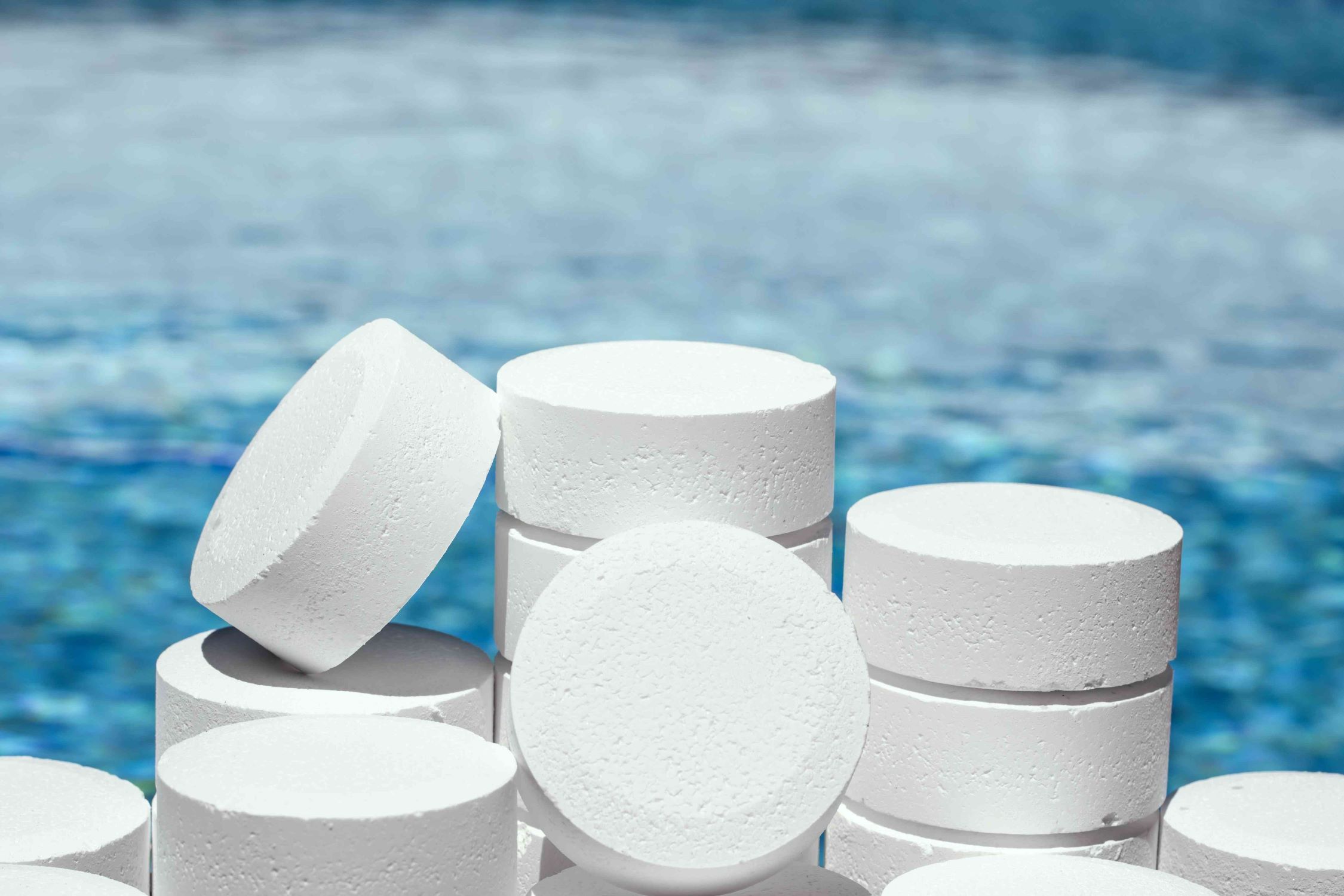

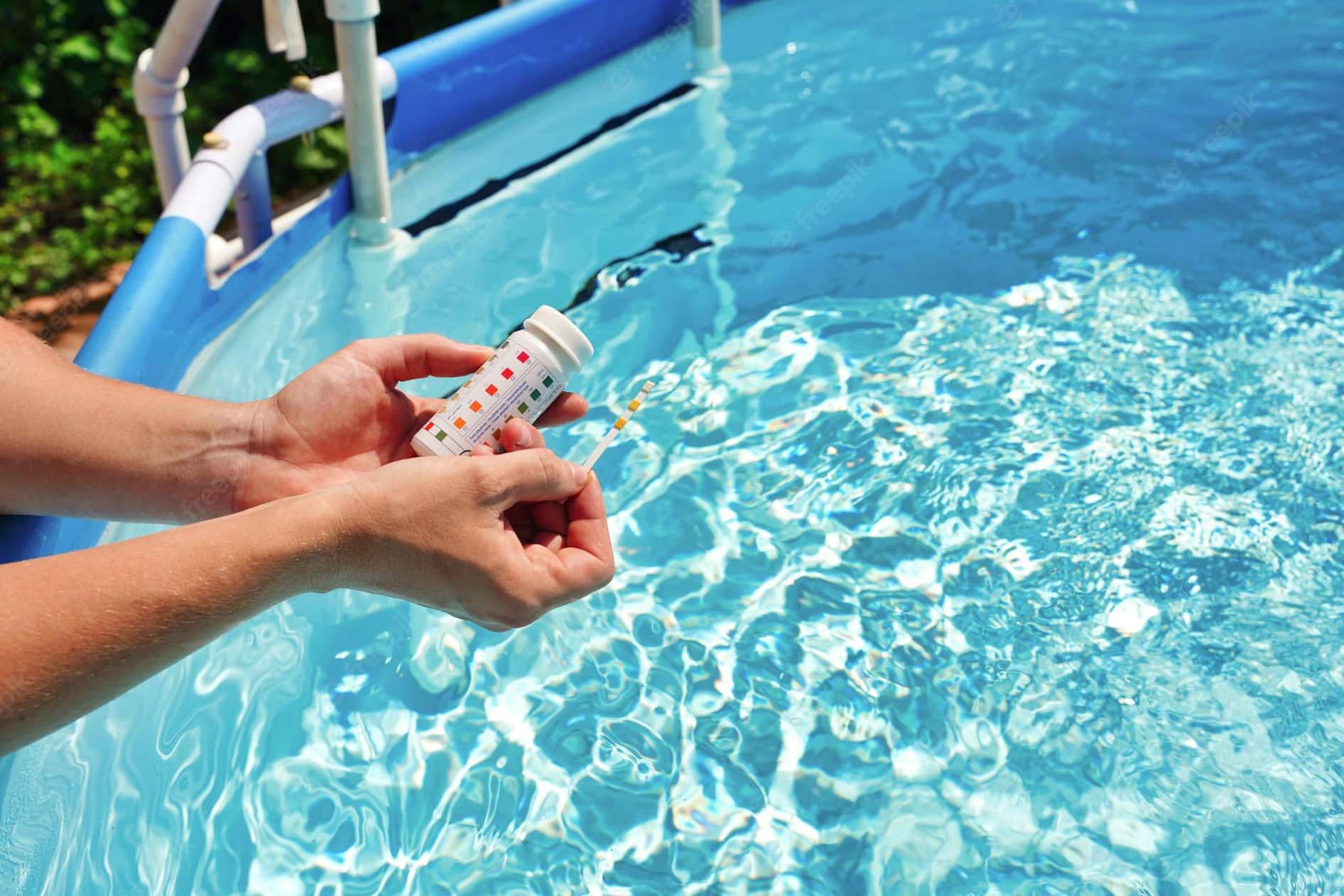
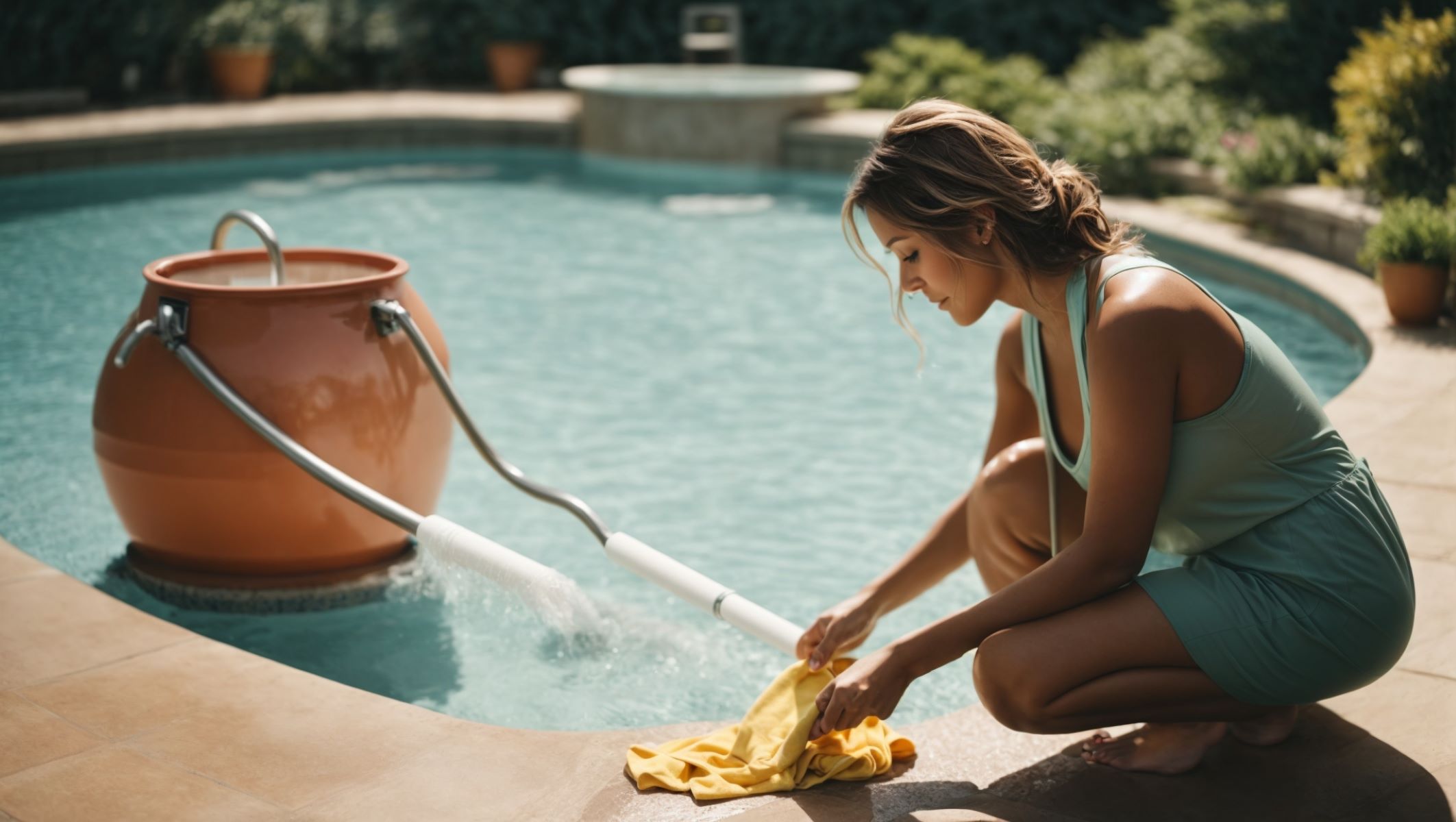
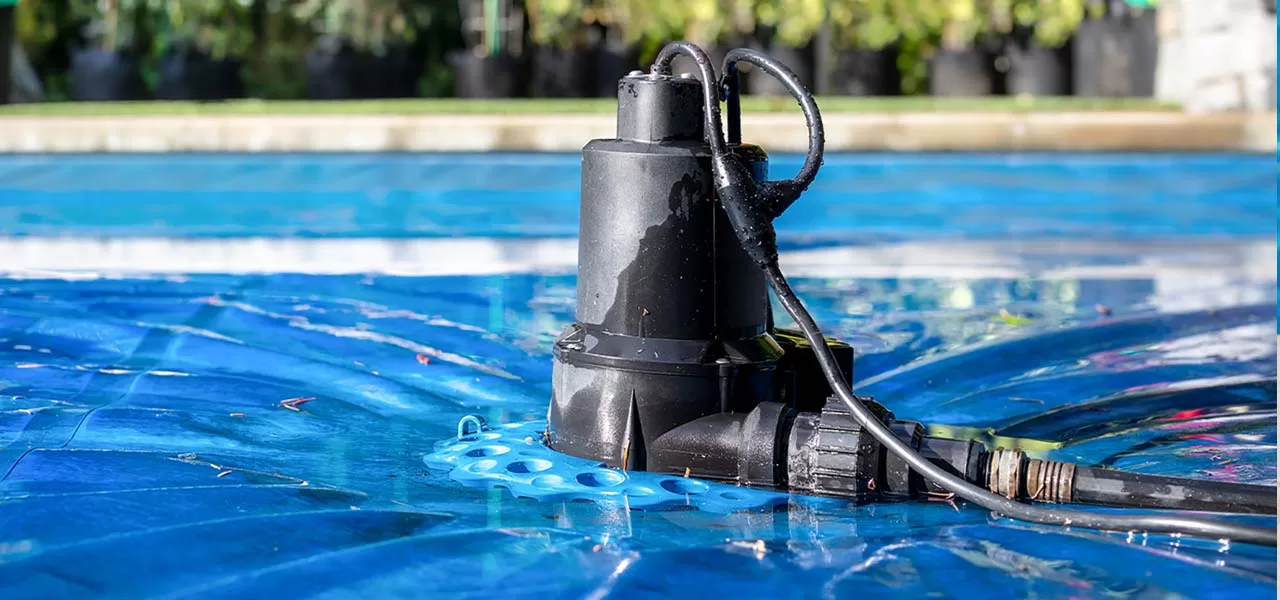


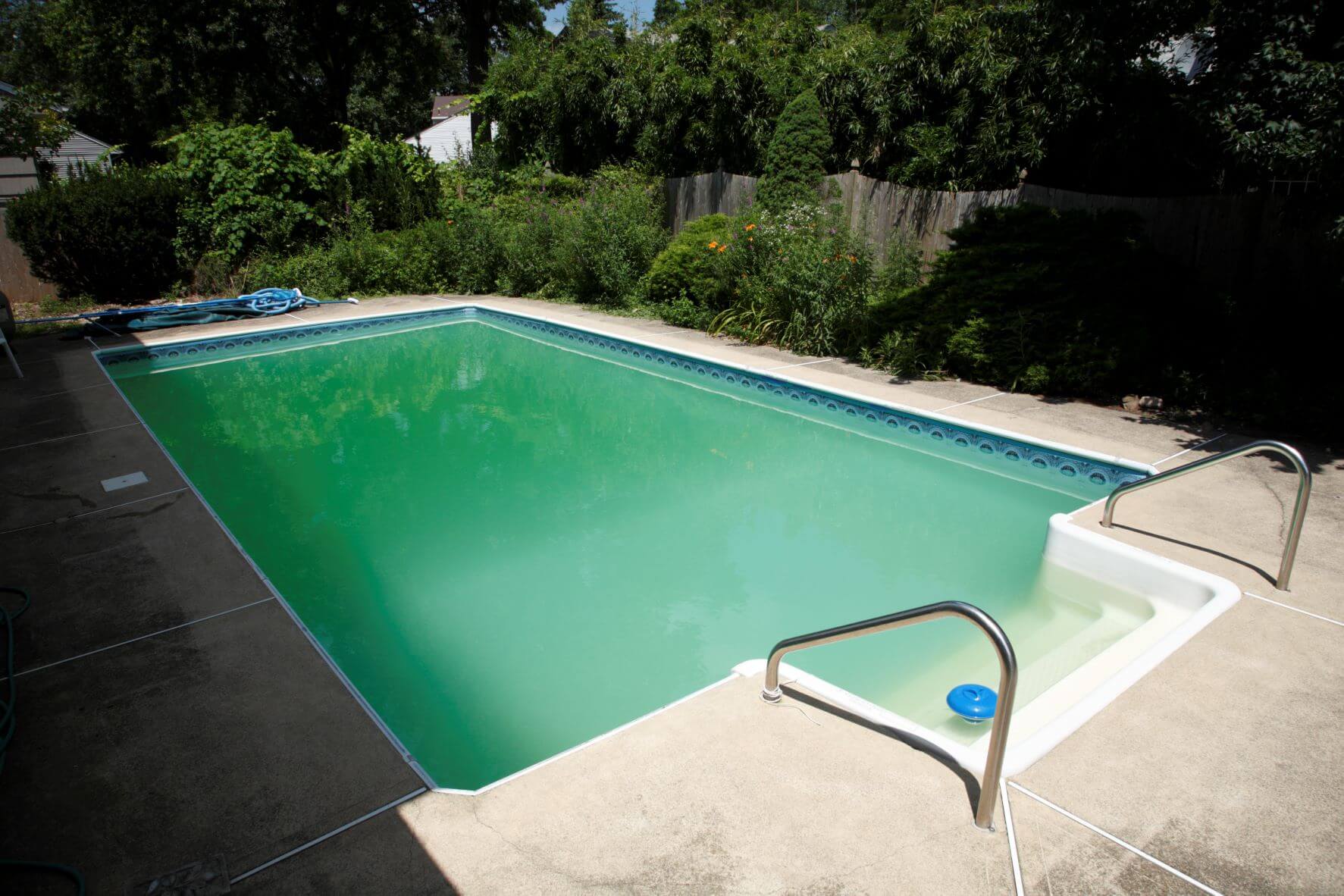
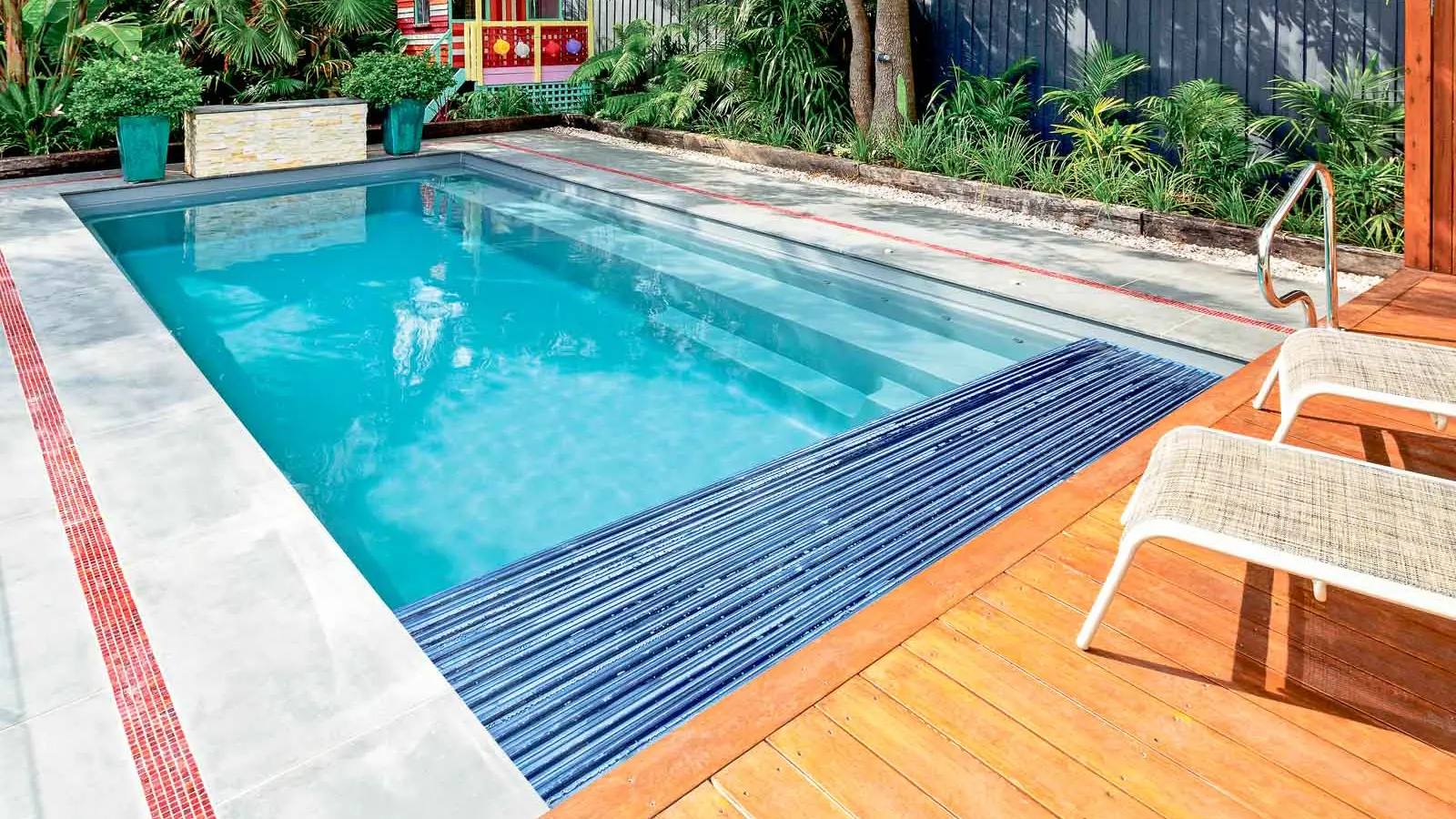
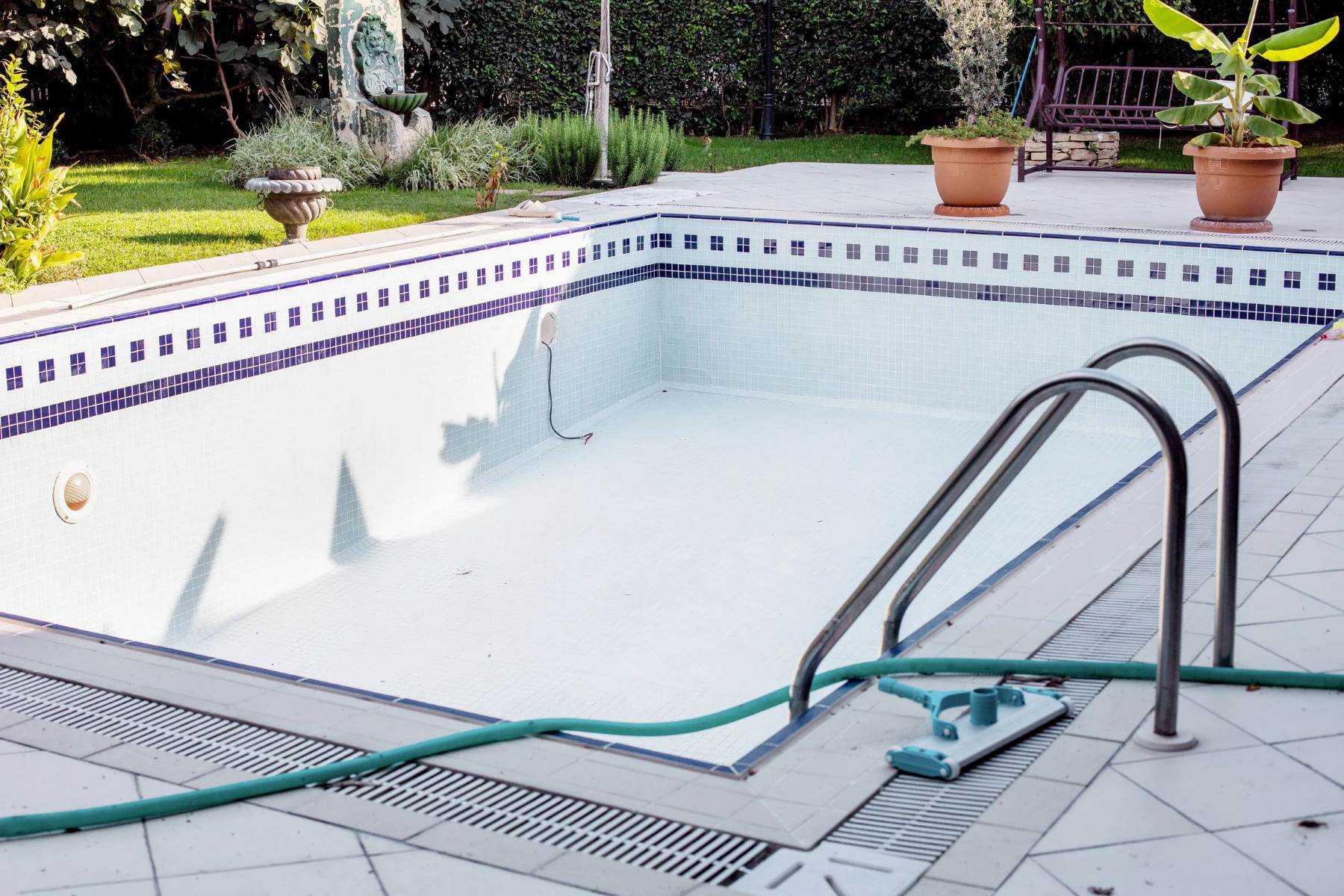


0 thoughts on “How To Test Swimming Pool Water”